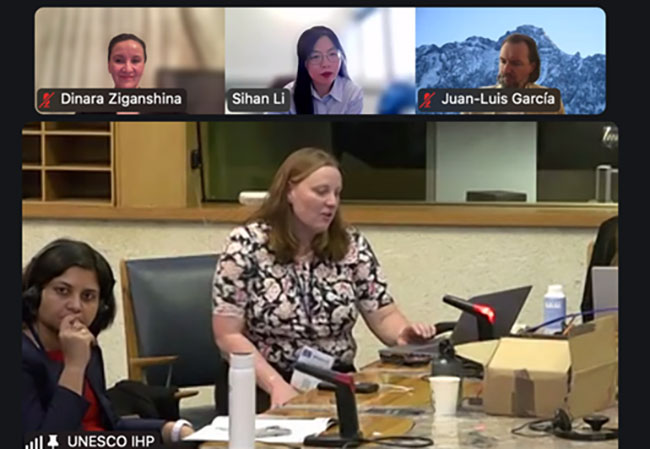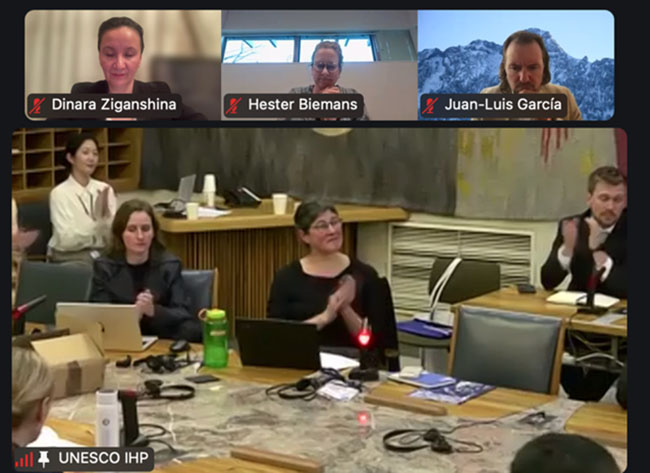No. 15 (539) март 2025 г.
SIDE-EVENT "A VANISHING MOUNTAIN CRYOSPHERE AND ITS IMPORTANCE TO THE WATER CYCLE UNDER CLIMATE CHANGE"
On 20 March 2025, UNESCO Headquarters in Paris hosted a side event "A vanishing mountain cryosphere and its importance to the water cycle under climate change" as part of celebration of the first World Day for Glacier and World Water Day. This side-event brought together researchers, policymakers and activists to discuss the impacts of climate change on glaciers and snowpack and the implications of these changes on water resources.

Reporters from the International Association of Cryospheric Sciences and leading research institutes presented the up-to-date data on the rates of glacier shrinkage, the impacts of cryosphere degradation on sustainability of water supply in mountain and lowland regions, as well as the challenges and opportunities for international cooperation. Particular attention was paid to integration of scientific evidence into decision making and the need for investments in sustainable cryosphere monitoring.

Director of SIC ICWC spoke as a panelist and shared the experience of using the MODSNOW cryosphere monitoring system in Central Asia. The system uses remote sensing technology and modeling to trace snowpack and glaciers with high spatial and temporal resolution. This helps to improve flow forecasting and water management in the region.
The questions raised were of key importance for the development of new approaches to management of the water cycle. Changes in cryosphere impact water availability, especially in dry regions such as the Andes and Central Asia. The understanding of these processes and adoption of innovative monitoring systems, such as MODSNOW, are important for adaptation to changing conditions and sustainable management of water resources in the future.
The event underlined the need for interdisciplinary approach and cooperation between different stakeholders for the development of effective strategies for adaptation to changes in the cryosphere and sustainable water management in the context of global climate change.